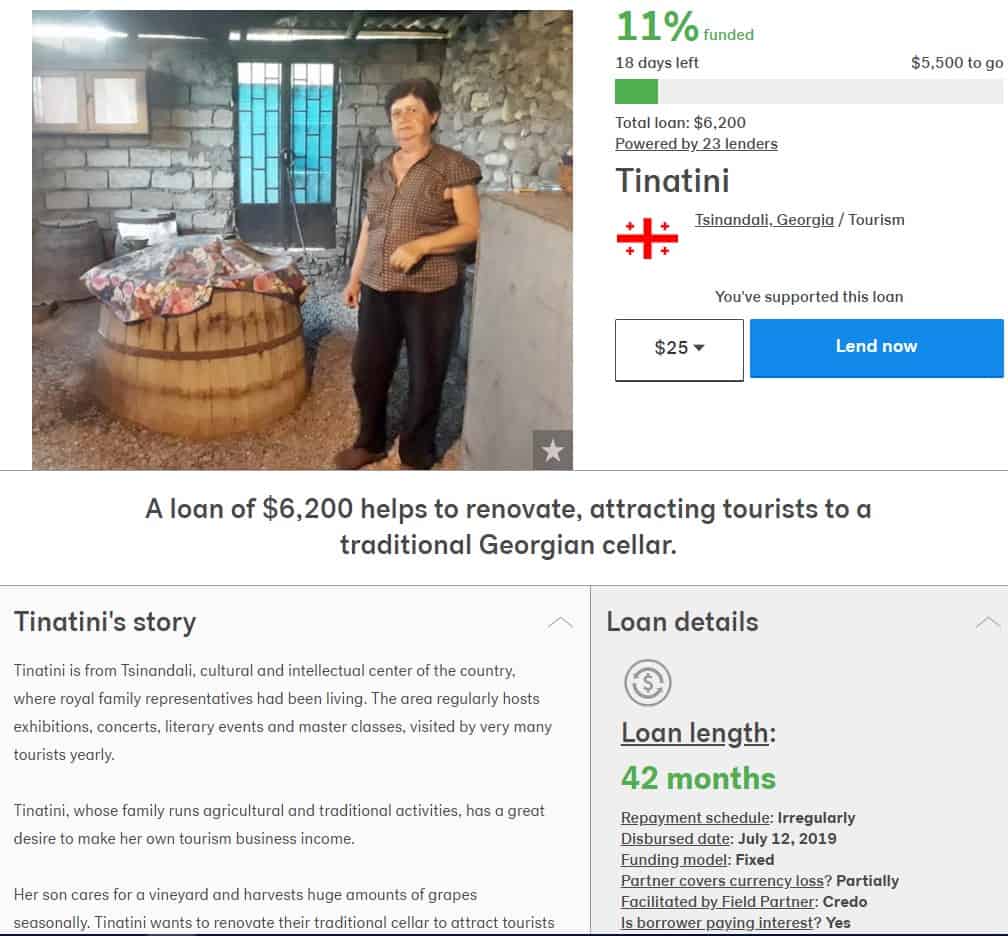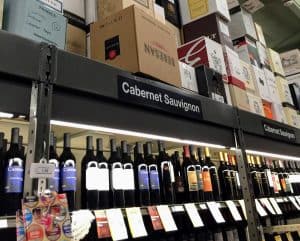First off, I want to apologize for the radio silence the last couple of weeks. August is “vacation-month” in France and, perhaps, Paris is rubbing off on me. My brain certainly needed some time away from the wine world to recharge. Still not quite back in the saddle yet but I’m getting there.
However, I do want to take the time to highlight this Kiva micro-loan for a small Georgian winery and what it means for the future of wineries like Tinatini’s.

Kiva.org’s loan page for Tinatini and her son to modernize their winery so they can take part in Georgia’s growing wine tourism industry.
Please consider donating and sharing this page.
Most folks in the wine industry have heard this “joke.”
How do you make a small fortune in wine?
You start with a large fortune.
The response is usually a knowing chuckle followed by a small sigh because of how true that statement is. It’s not easy to make money in the wine industry. This is why so many winery owners nowadays are “second career” folks who have made their fortune elsewhere.
But the goal hasn’t always been to make a small fortune.
When you look at the history of wine on a global and historical scale, it’s populated far more by stories of small family wineries like Tinatini in Tsinandali, Georgia than it is by dot.com billionaires and shipping magnates living the “vintner’s life-style.”
Yes, there has always been the grand estates of the gentry like the Pontacs’ Ho Bryan and the esteemed Roman crus extolled by Pliny the Elder.

Jacob Gerritsz’s The Wine Grower. (1628)
But it likely wasn’t all Roman DRC poured at the taverns of Pompei. Of the thousands of ships that have sailed from Bordeaux to London, the fabled classified growths only accounted for a small percentage of that cargo.
Throughout history, the backbone of the wine industry has always been families making wine for sustenance. Both personal sustenance and as a source of income.
Not to make a fortune and to buy a Ferrari. But to pay for a roof over the head. Support for their children. And maybe buy a few more barrels.
As consumers and folks in the industry, we must never lose sight of this.
The vast, vast majority of people in the wine industry aren’t here to make a fortune. But instead to do something they love. Perhaps, with the hope that they’ll make enough to pass that love onto the next generation.

If you see a tasting room sign of a winery you’ve never heard of, give it a shot. You never know, it might become your new favorite.
While no one is entitled to a sale (the “Nice Guy Syndrome”) on the merit of being a small family winery alone, I do think these wineries deserve respect and at least the chance to earn your attention.
Today, there are so many agricultural crops that are nothing but commodities. Do you know who farmed your corn? Who harvested the peaches you enjoyed at lunch? Do you know where the grain that went into your bread or the milk in your butter came from?
We’ve lost our connection to so many of our food items because we’ve lost sight of the people behind them.
I don’t want to see the same thing happen to the wine industry. Which is why when small family wineries like Tinatini ask for our support, let’s not lose our opportunity to give it.




